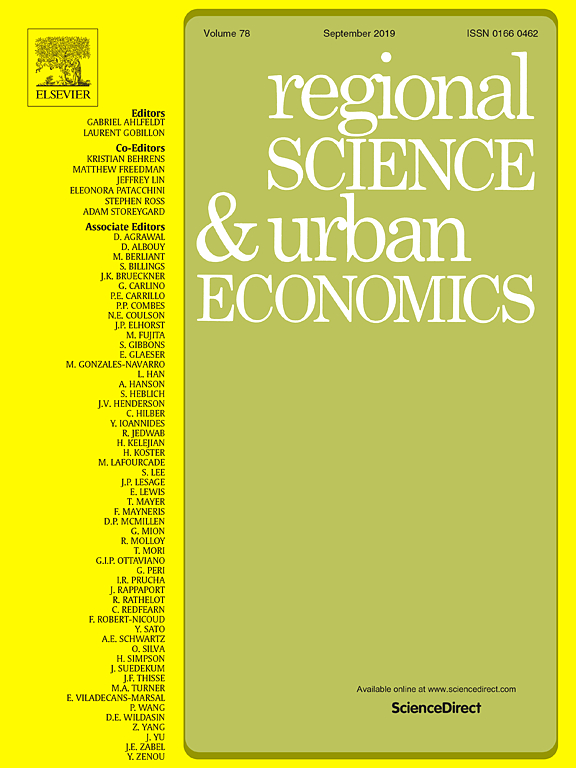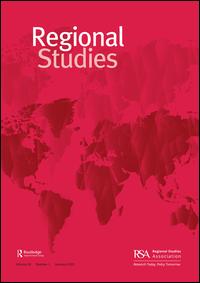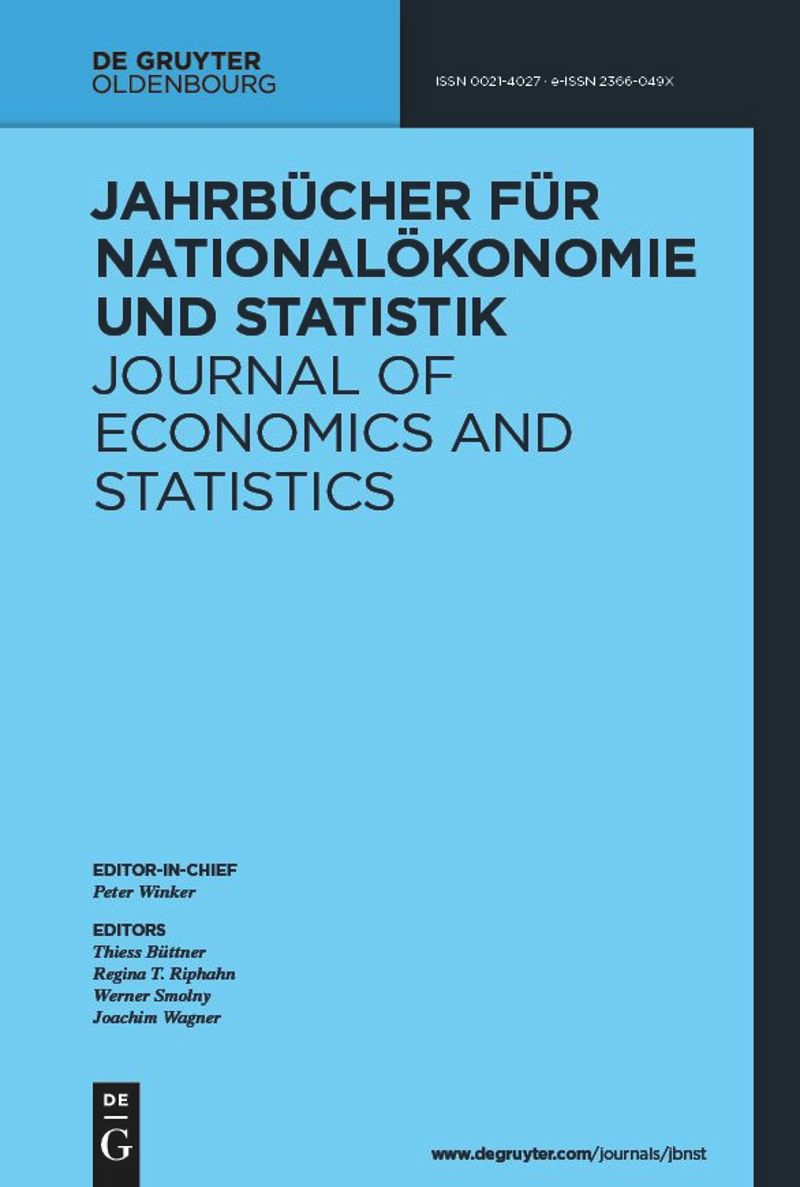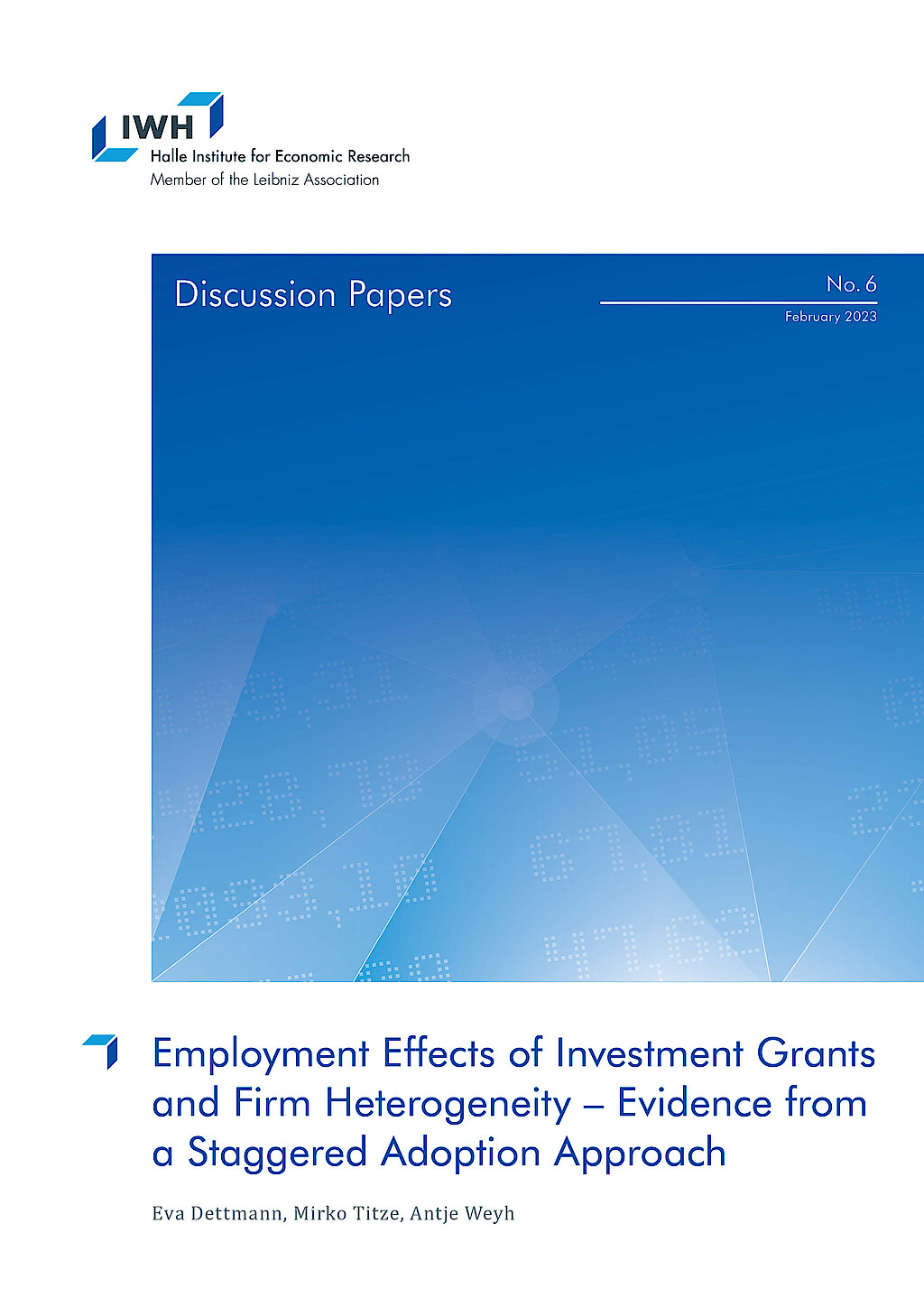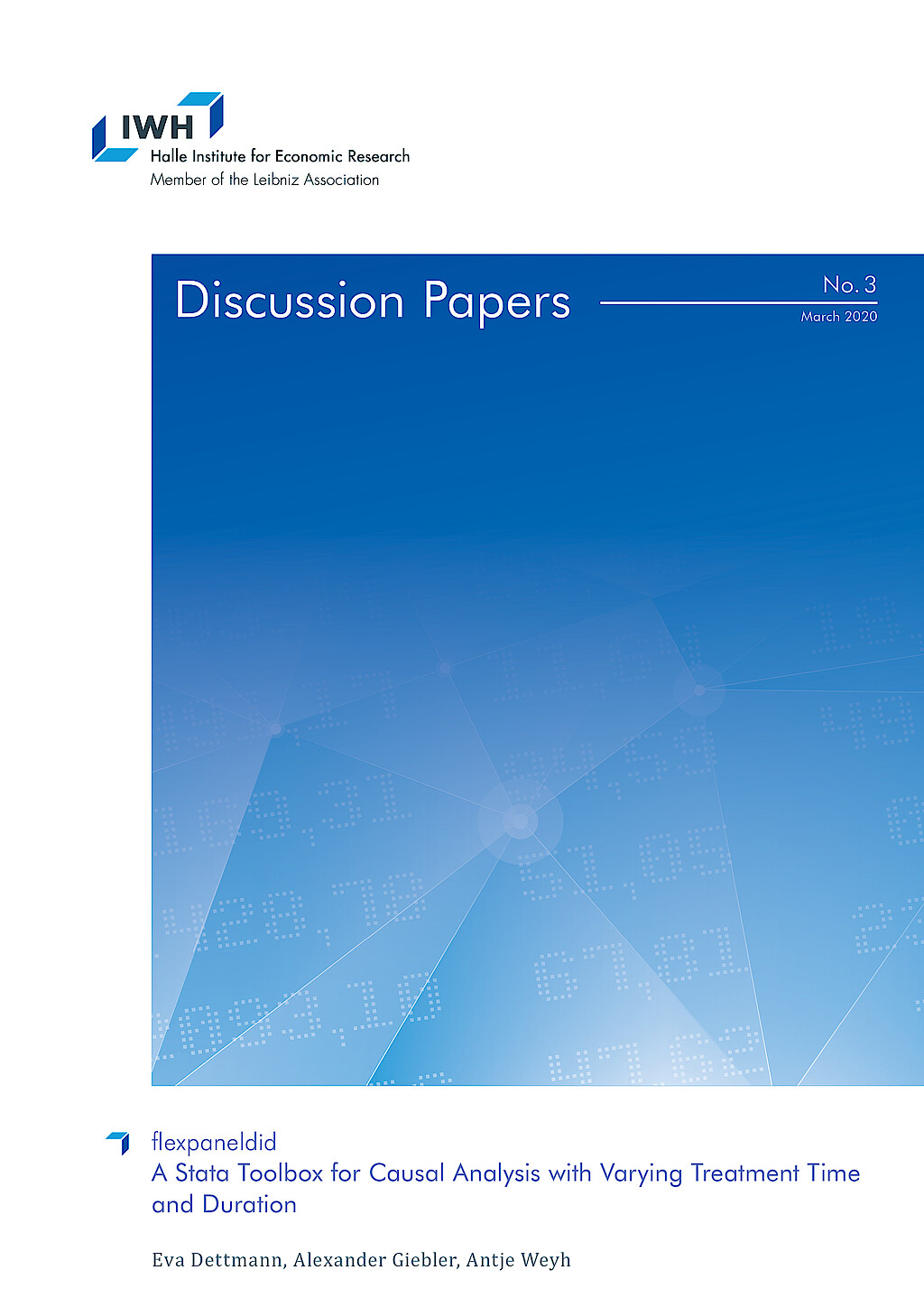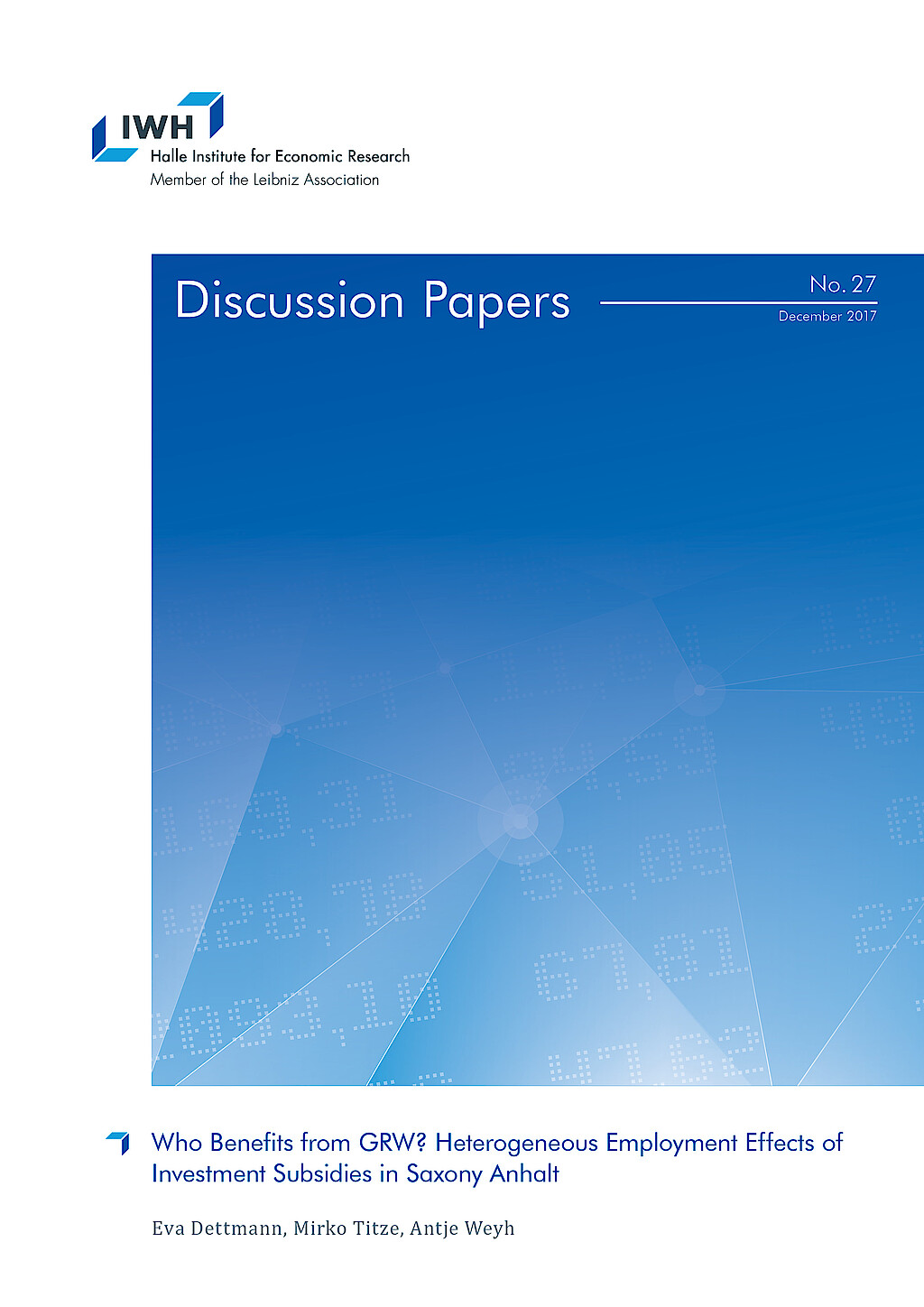Dr Eva Dettmann

Current Position
since 3/18
Deputy Head of the Centre for Evidence-based Policy Advice (IWH-CEP)
Halle Institute for Economic Research (IWH) – Member of the Leibniz Association
Research Interests
- empirical evaluation of regional and innovation policy
- efficiency of economic policy
- applied microeconometrics
Eva Dettmann joined the institute in 2002. She is deputy head of the Centre for Evidence-based Policy Advice (IWH-CEP) since 2018. Her research focuses on microeconometric analyses, especially the evaluation of economic policy measures.
Eva Dettmann earned a diploma and doctoral degree from Martin Luther University Halle-Wittenberg.


